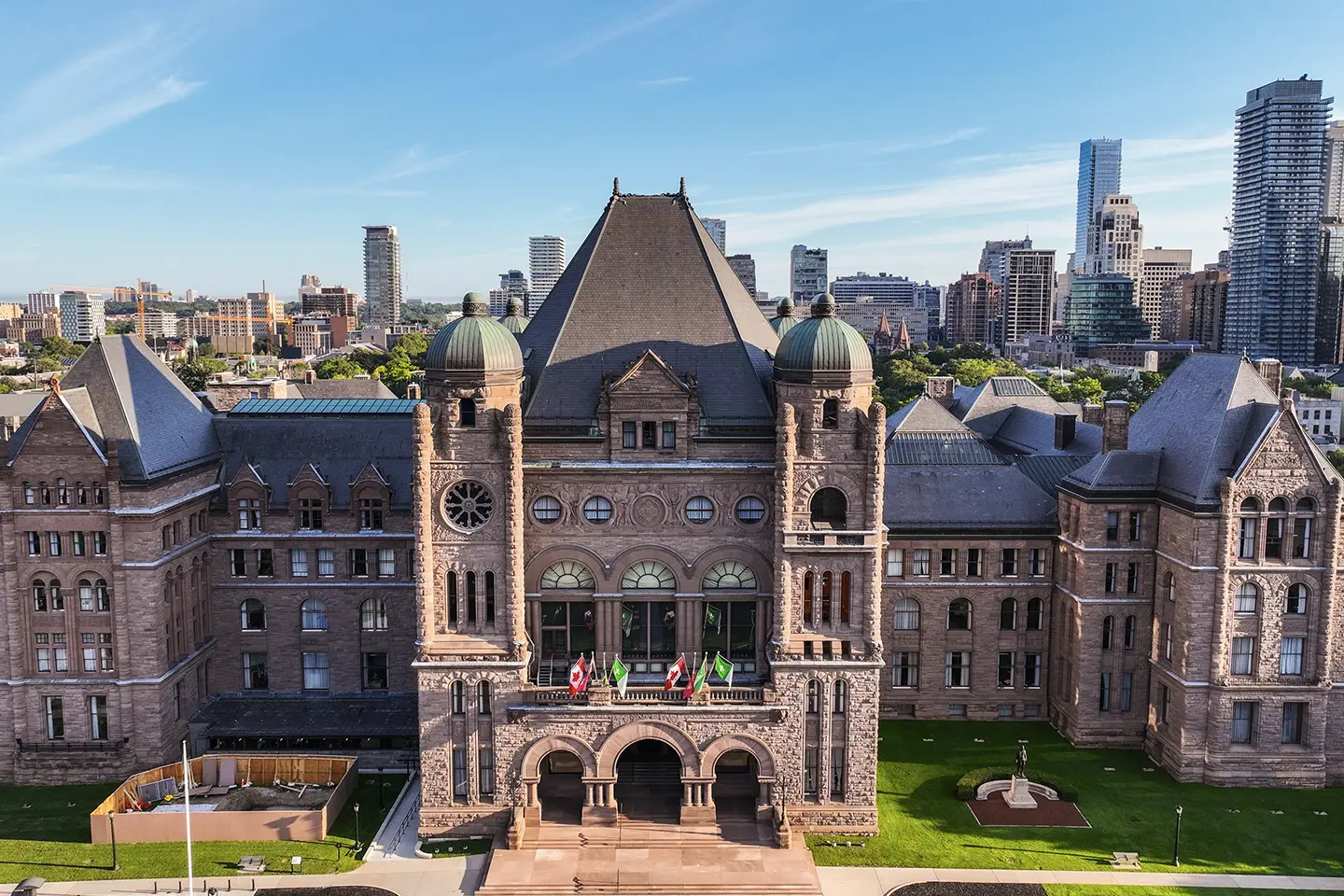#ONelxn2022 Series: The No-Narrative Election: The Impact of COVID on Campaign Communications

Barring, say, the albatross of an unprecedented global crisis, first-term incumbency is typically viewed as an advantage.
Media exposure and legislative control afford early opportunities for the incumbent party to set the electoral agenda, while budgets can be wielded as concrete, costed weapons in service of whatever program or project might just sway a certain swathe of voters to vote a certain way. And for all the talk of a need to “do things differently,” there’s something to be said for experience. We tend to favour a steady hand on the tiller; the devil we know over the one we don’t.
Those advantages could be available to Premier Ford as he makes a run at his first re-election as Premier. He’s wielding his incumbency strategically: the late release of his pre-election budget — surely to be a populist document containing all sorts of cross-aisle offerings — has left opposition parties with blind spots in their planning. And though at times a double-edged sword, Premier Doug Ford can certainly capture the attention of media, seizing control of a narrative and making it particularly hard for opposition to get a word in edgewise.
Yes, all the advantages of incumbency could be available to Premier Ford and might well be to some degree. Except for the small matter of that unprecedented global crisis - the COVID-19 pandemic.
The challenge for all political parties in this election is that we’re all exhausted by the last two years and want to put them in the rearview mirror. So, the trump card of incumbency — experience — as well as genuine attacks on the Ford government’s record are somewhat off the table. No party, regardless of how valid the argument, will curry favour with voters by serving as a constant reminder of the chaos we’ve all collectively endured. Regardless of where you stand on how the pandemic has been handled to date or should be handled moving forward, we’re just plain tired of talking about it.
Nowhere is the acknowledgment of that exhaustion more obvious than in the political parties’ first campaign ads. In nearly 2 minutes of run time combined, there is nothing in either the Conservative or the NDP pre-election ads to suggest that the last two years have been anything but normal. There is not a single mask. Not a single six-foot queue. No indication that we’ve all just undergone an unprecedented mass-vaccination campaign and only vague allusions to the challenges we’ve faced. There is however an identical pledge, from both, to “get it done.”
Ah, the amorphous “It”. The nondescript object. The dummy subject.
In the absence of being able to talk about the elephant in the room, the rug has perhaps been pulled out from under our traditional electoral sparring, grounded historically in the punch/counterpunch on an incumbent’s record. In its place we find “It.” A combination of… things… our politicians will do… subject to our own interpretation of what needs to be done… in response to the other thing we don’t want to talk about…
Helpfully, “It” will generally mean whatever the listener (in this case, the voter) wants it to mean. A plan to tackle housing affordability and get housing built? Absolutely. Tackling our stretched healthcare system? Yup. Building more infrastructure to accommodate our growing population? Sure, that too.
While more specific policy planks are likely to emerge in coming weeks, providing some definition to the abstract “It” (and giving voters something more tangible to mull), what’s unlikely to emerge from any party is a cohesive, over-powering narrative. A disinclination to tie everything back to the thing that has fundamentally altered our economy and our public services — and out of necessity must shape policy in the immediate term — will mean this election will be decided on a series of smaller, issue-specific fronts rather than on a grander scale.
Strategically, the malleability of “It” presents considerable opportunity for organizations to also shape what the term is understood to mean, giving significant scope to advance their policy goals during the election. Absent an overarching narrative guiding the election or an overwhelming emotional tide directing voter sentiment, parties are likely to pay closer attention to the micro-narratives developing around specific issues and how third-party policy options put forth by organizations can be adapted into political promises to gain an edge on any given front.
Increasingly, it is the digital domain where the election narratives are being shaped and political parties are communicating with voters. Organizations looking to advance their own policy narratives during this election need to be active in this arena as well.
A successful Digital and Communications campaign is done in lockstep with traditional government relations activities, not instead of that work. For example, it is important to align your message to electoral narratives. An organization can then leverage advanced digital targeting and communications tools to build support for their position with public audiences. And then, to have the greatest impact on political outcomes, it is necessary to follow that with direct advocacy, supported by this public support.
In a No-Narrative election, as the 2022 Ontario election is shaping up to be, there’s a narrative vacuum that organizations have the opportunity to fill. And digital advocacy is how they will get “It” done.


